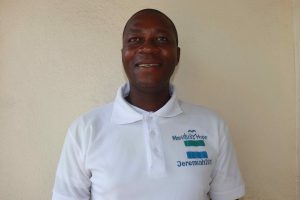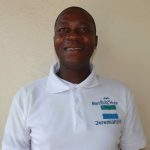The community of Karma has a hand-dug well, but it is in severe disrepair and cannot provide the needed water for the community of 300. Beyond the broken components, it also suffers from seasonal drying at least two months of the year. The water hasn't been chlorinated in three years.
As a result, community members have resorted to collecting water at the local swamp. It is nearly a 30-minute walk in each direction on a narrow, bushy pathway, but water has to be collected before going to school or starting farm work, so there is no choice but to make the tiresome trek every day.
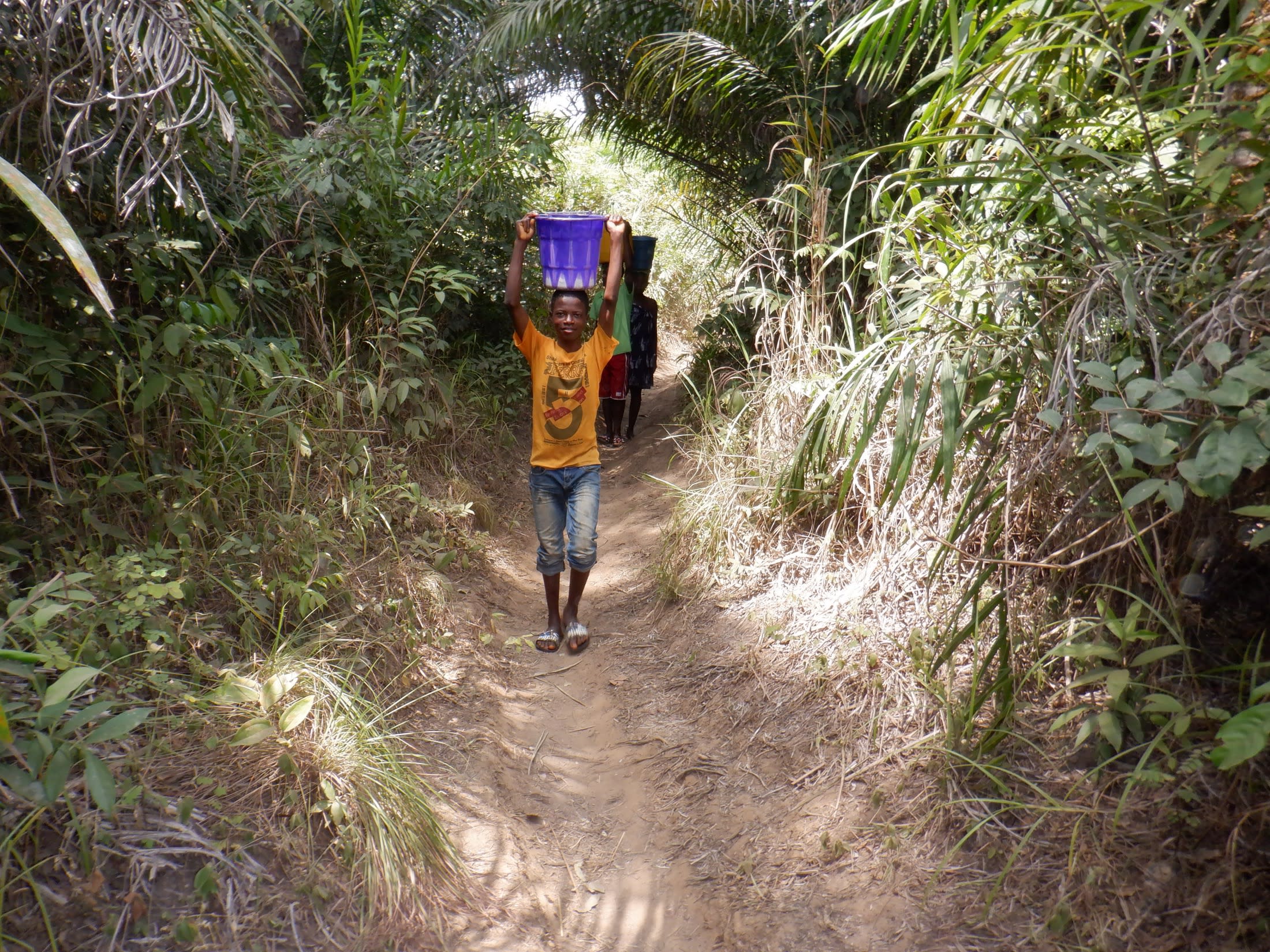
Trader Mariatu Kamara (35), in the photo below collecting water, shared, "The water situation is really affecting my trade because I need enough water to prepare the food I sell, such as foo-foo and pepper soup." (Foo-foo is a starchy staple dish in many African cuisines made from ground cassava.)
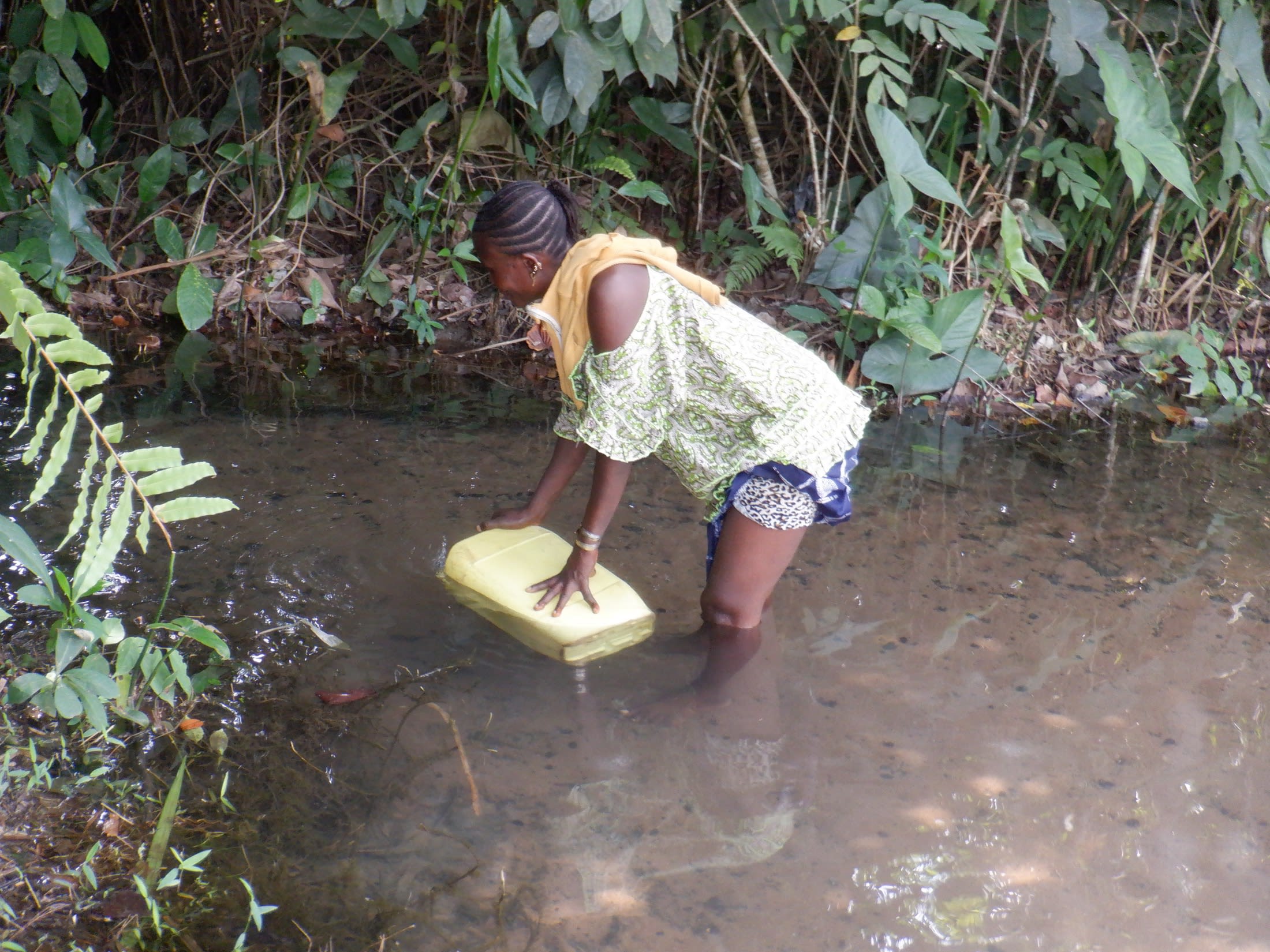
"When the main water source gets spoilt, I have no choice but to fetch water from the stream, which is a distance away from my house," Mariatu continued. "At times, I even pay the boys in my area to fetch water for me, or I provide them food as [a] reward. This makes me spend my money on water, which should have been used to promote my trade."
Sadly, all the effort spent only leads to collecting dirty and unsafe water for drinking, but there is no other suitable alternative.
The water point is surrounded by grass and trees, and nearby farming allows runoff to drain into it. People wade into the water to fill their buckets, do laundry, and bathe. With so many people accessing the water, sediment is stirred up, and it is not uncommon to have to wait for an hour for the water to settle before collecting it again.
Mustapha K., shown below at the swamp, 17, said, "Honestly, there are a lot of constraints I face regarding fetching water. We have only one source of fetching water, the protected hand-dug well with [a] hand pump in the community. But with time, the pump machine gets spoilt, and the water well gets dry with a low quantity of water."
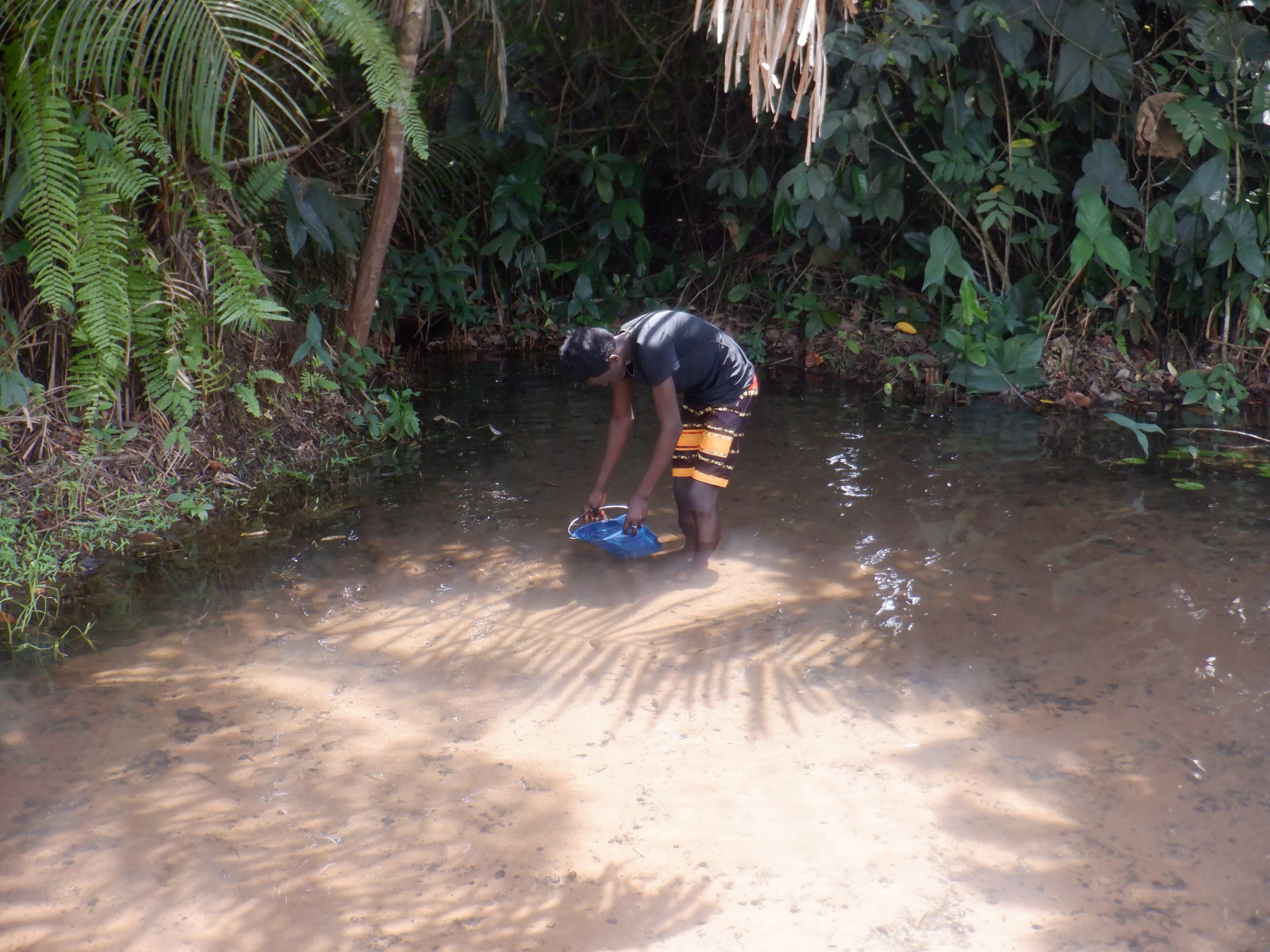
He continued, "I am left with no option but to fetch water from the stream. The distance from my house to the stream is too far. Every day I must wake up by 5:30 am to fetch water in the stream because my aunty must prepare her foodstuff to sell. This has affected me to the point that sometimes I go to school late. After school, I must walk miles to come home. On my arrival, I will take empty containers to fetch water for cooking and to launder my uniform. All this has made me get limited time to rest and study."
Community members in Karma need access to reliable, safe water without wasting all of their valuable time and energy.
Here's what we're going to do about it:
Well Rehabilitation
The well marked for this overhaul is dry for a few months every year and needs major work to supply adequate, clean water to the community year round. The pump will be removed, and a hand auger will be lowered inside and powered by a drill team. This hand auger will allow the team to drill several meters deeper to hit a sufficient water column that will ensure the well supplies water throughout all seasons.
As the team drills, casing will be installed, transforming the bottom of this hand-dug well into a borehole. PVC piping will connect this lower system directly to the pump, a construction that we know will also improve the quality of water.
Once this plan is implemented, everyone within the community will have access to safe drinking water in both quality and quantity, even through the dry months.
Hygiene and Sanitation Training
There will be hygiene and sanitation training sessions offered for three days in a row.
After our visit, the hygiene and sanitation trainer decided it would be best to teach community members how to build a tippy tap (a hand-washing station built with a jerrycan, string, and sticks). They will use these tippy taps for handwashing demonstrations, and will also teach about other tools like dish racks and the importance of properly penning in animals.
These trainings will also strengthen the water user committee that manages and maintains this well. They enforce proper behavior and report to us whenever they need our help solving a serious problem, like a pump breakdown.

 Borehole Well and Hand Pump
Borehole Well and Hand Pump









